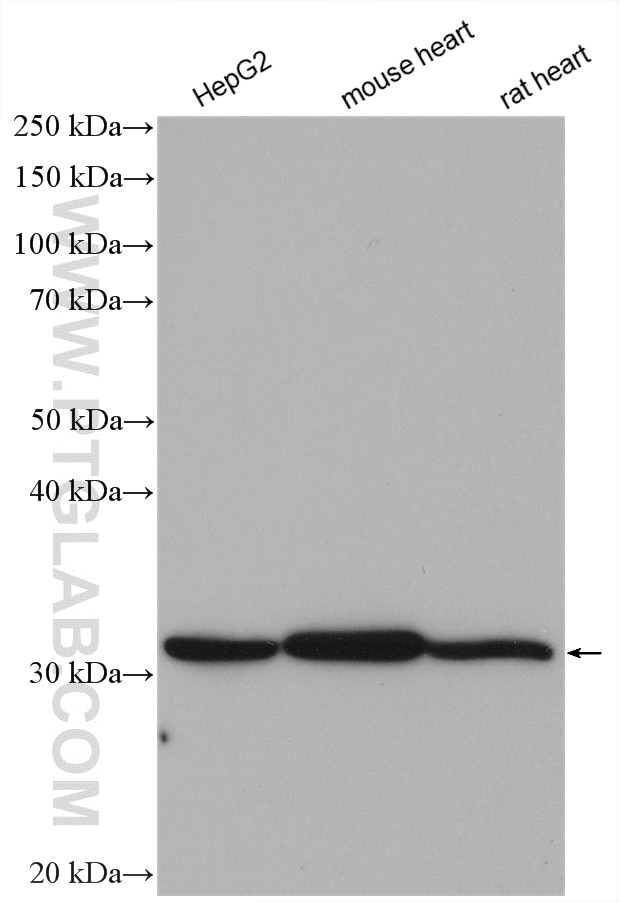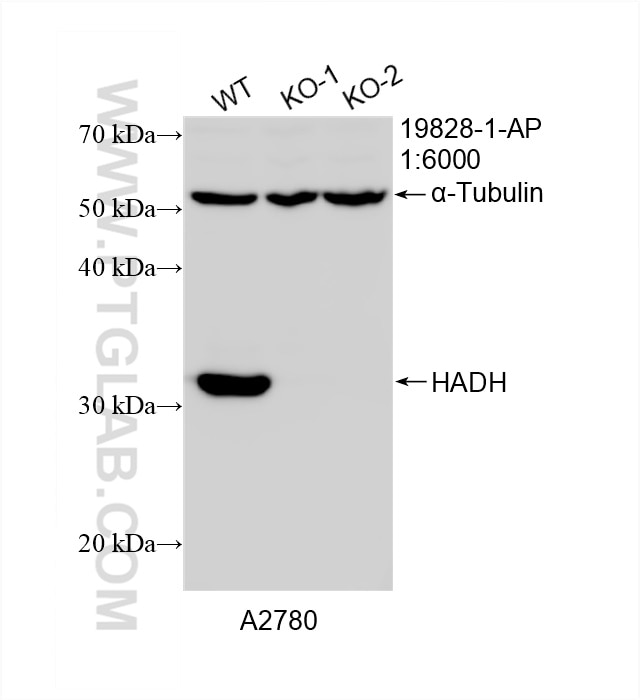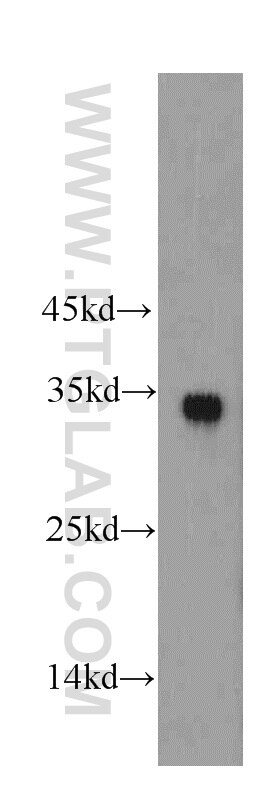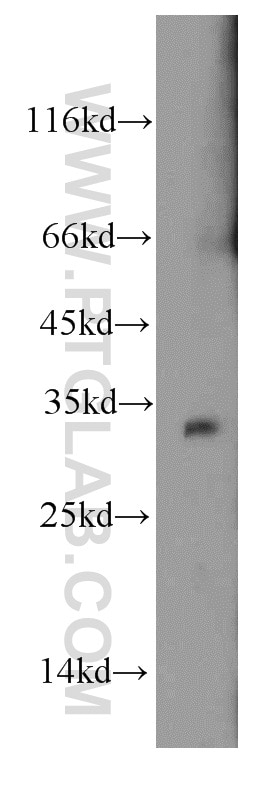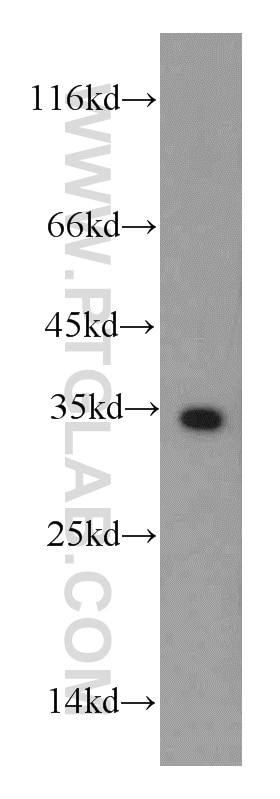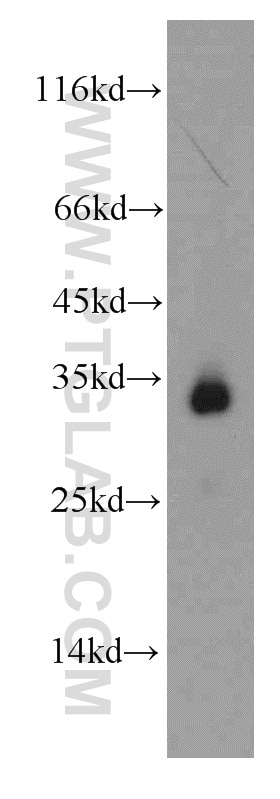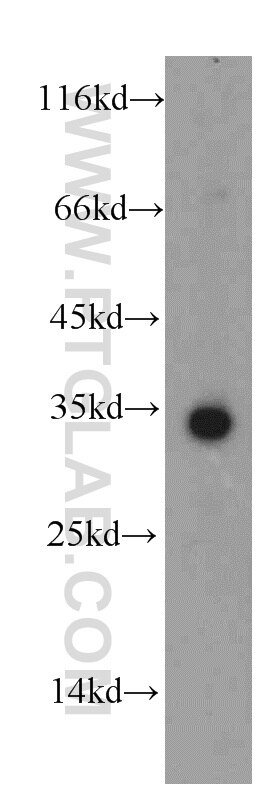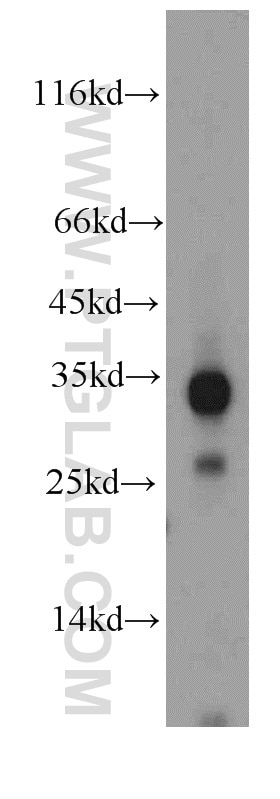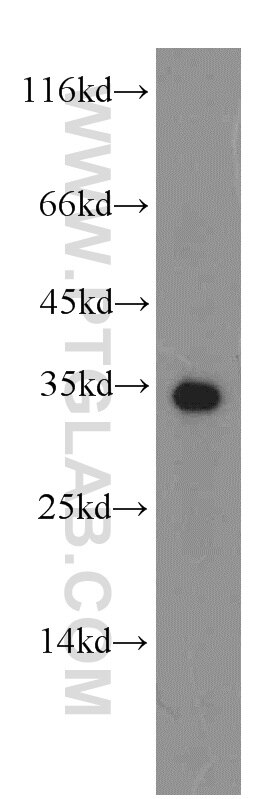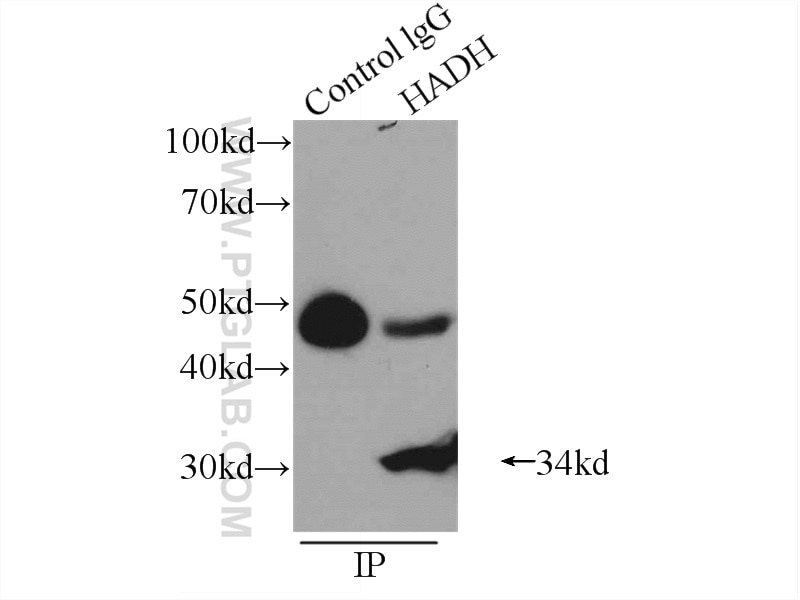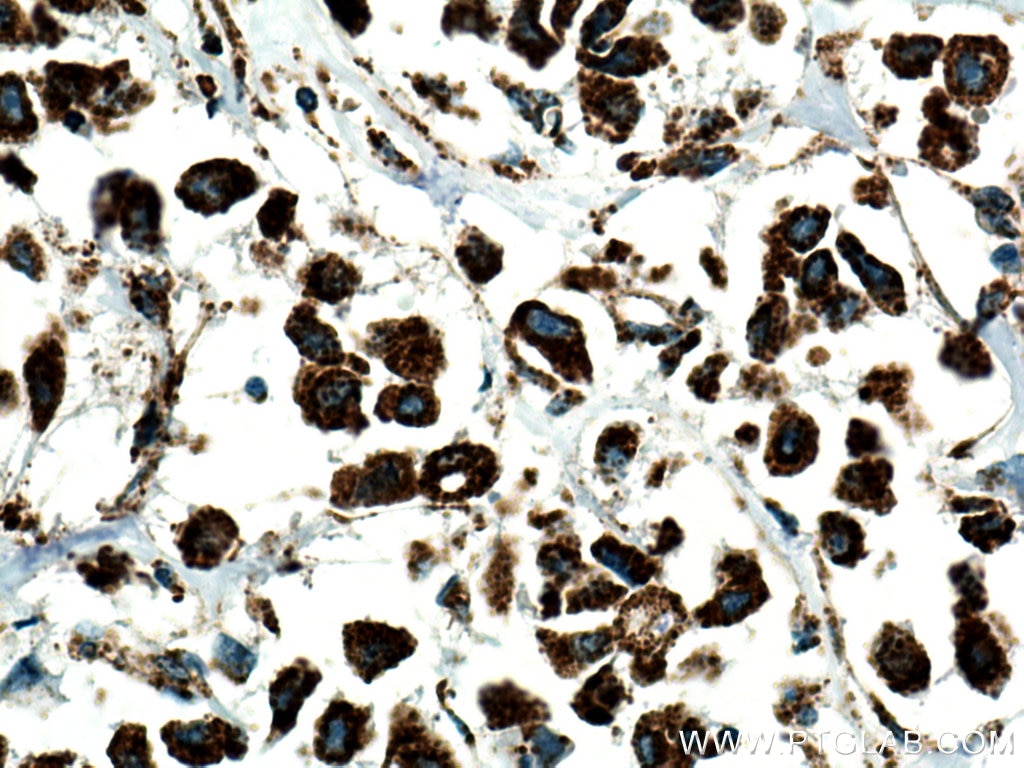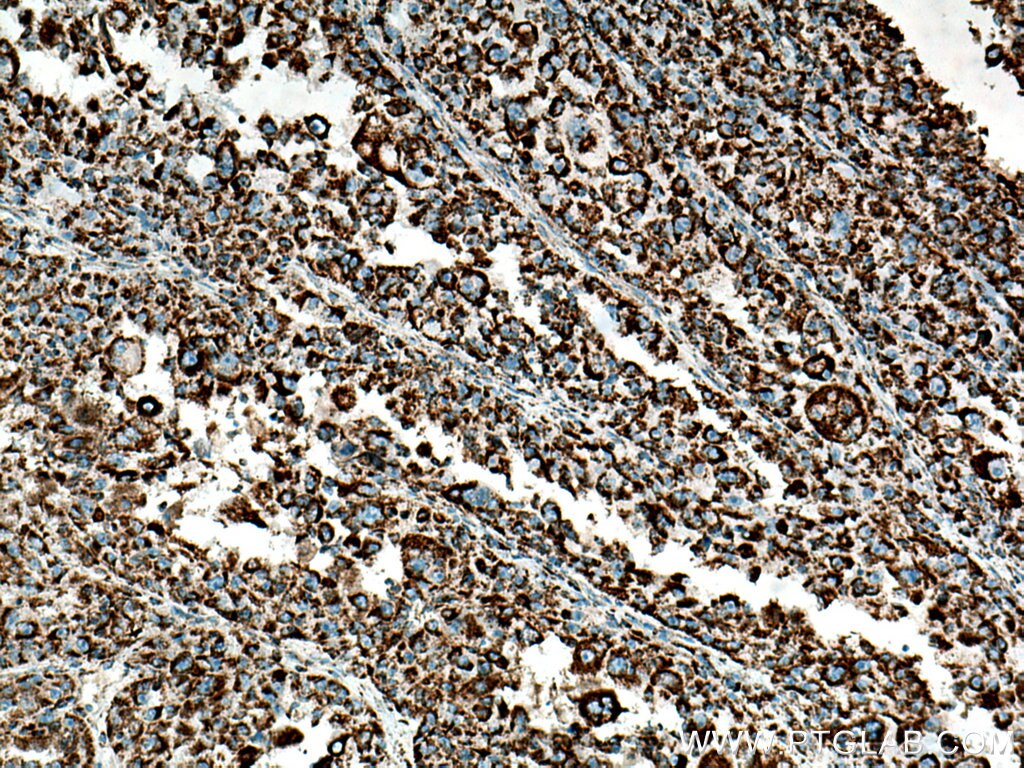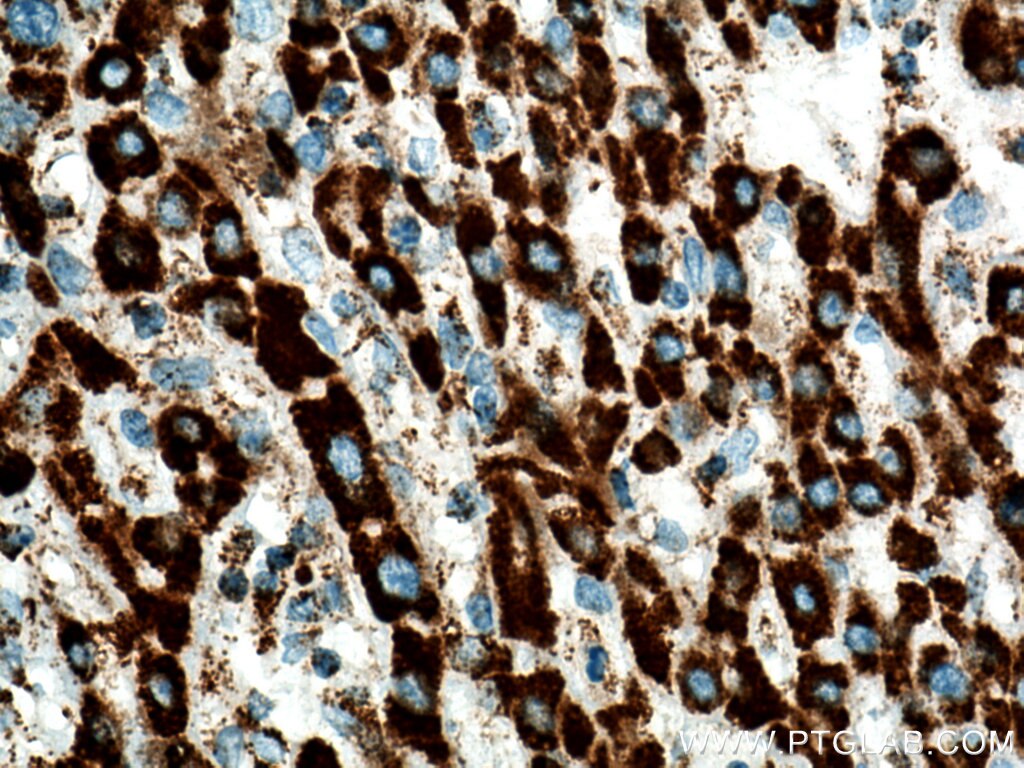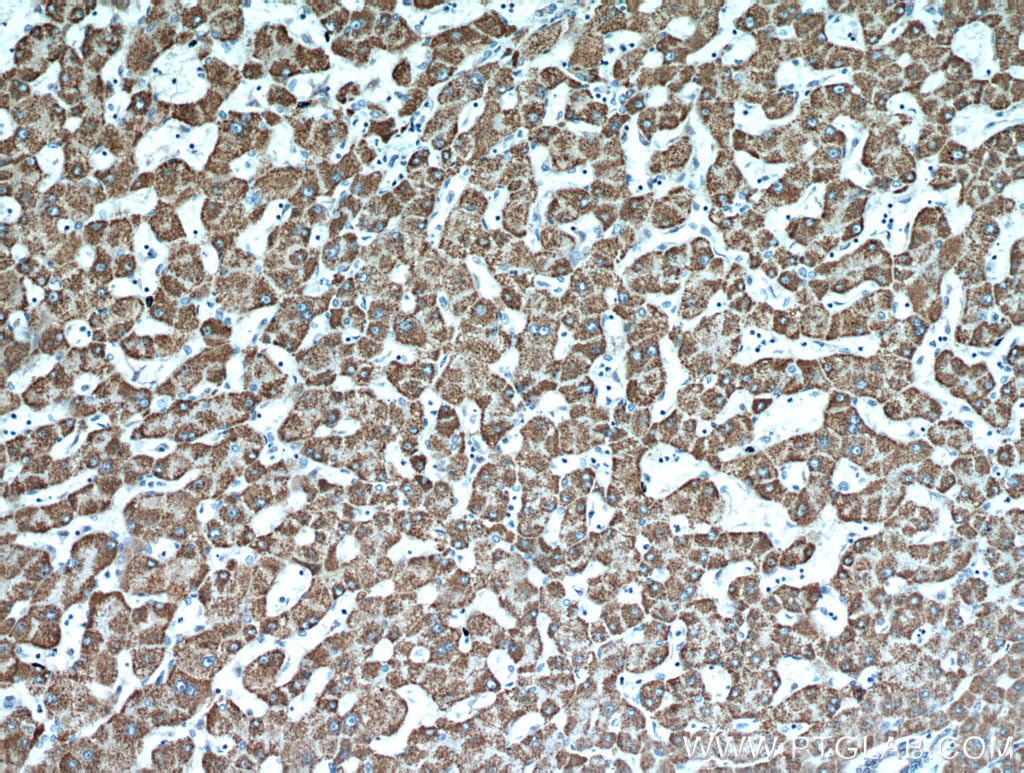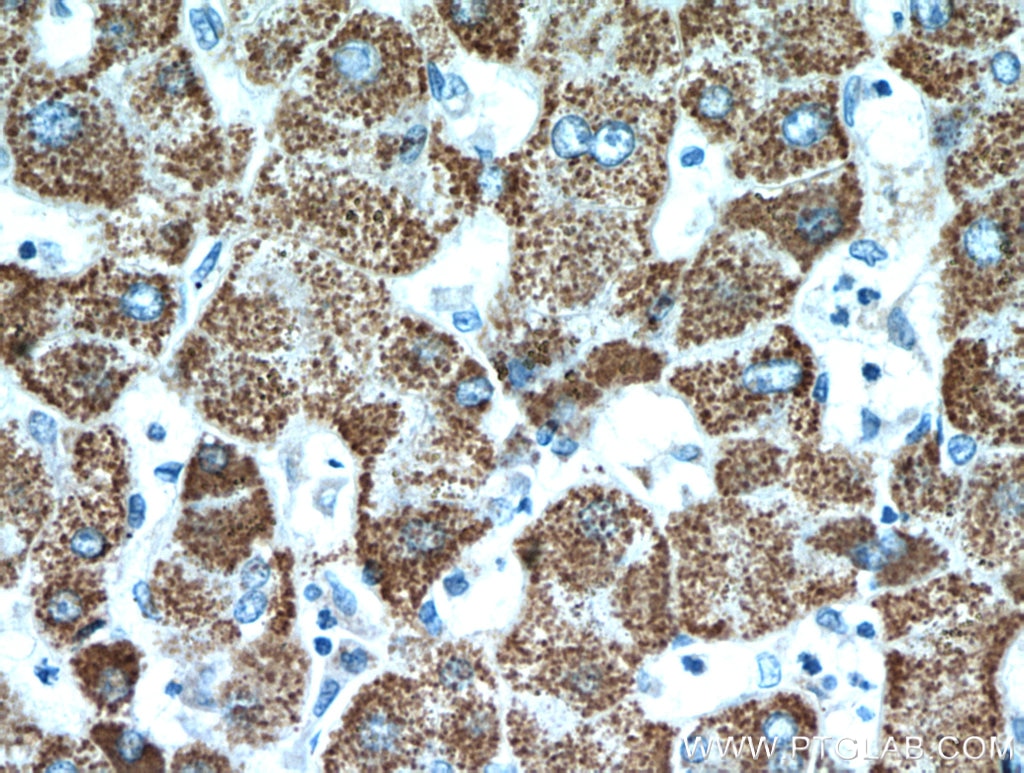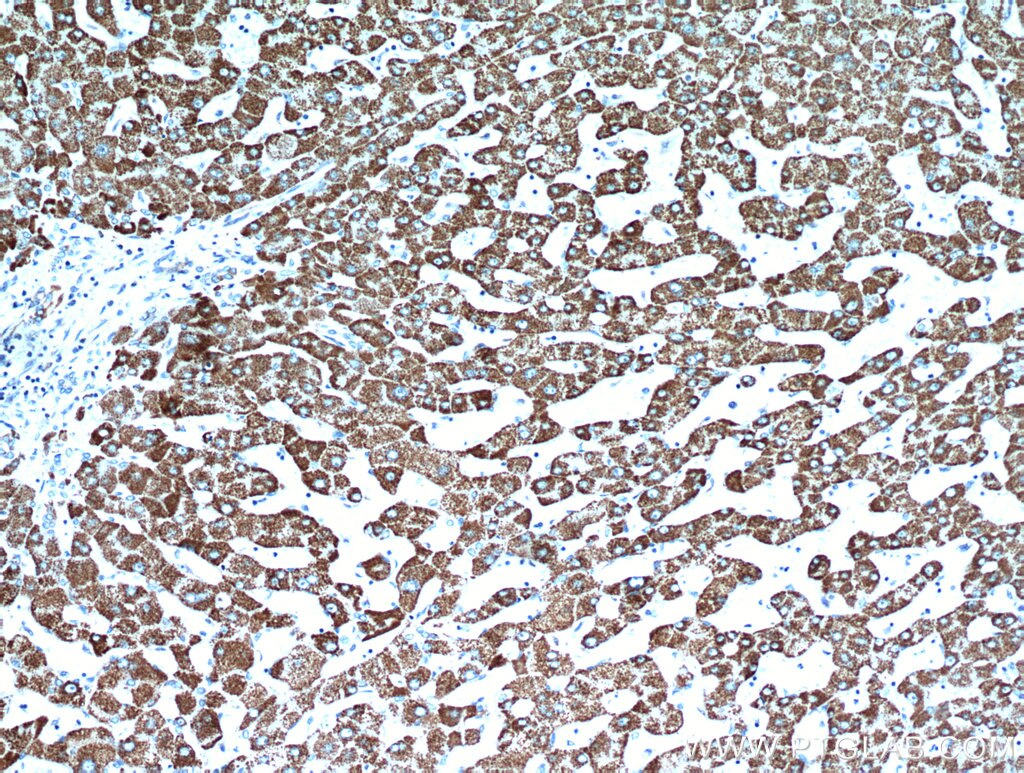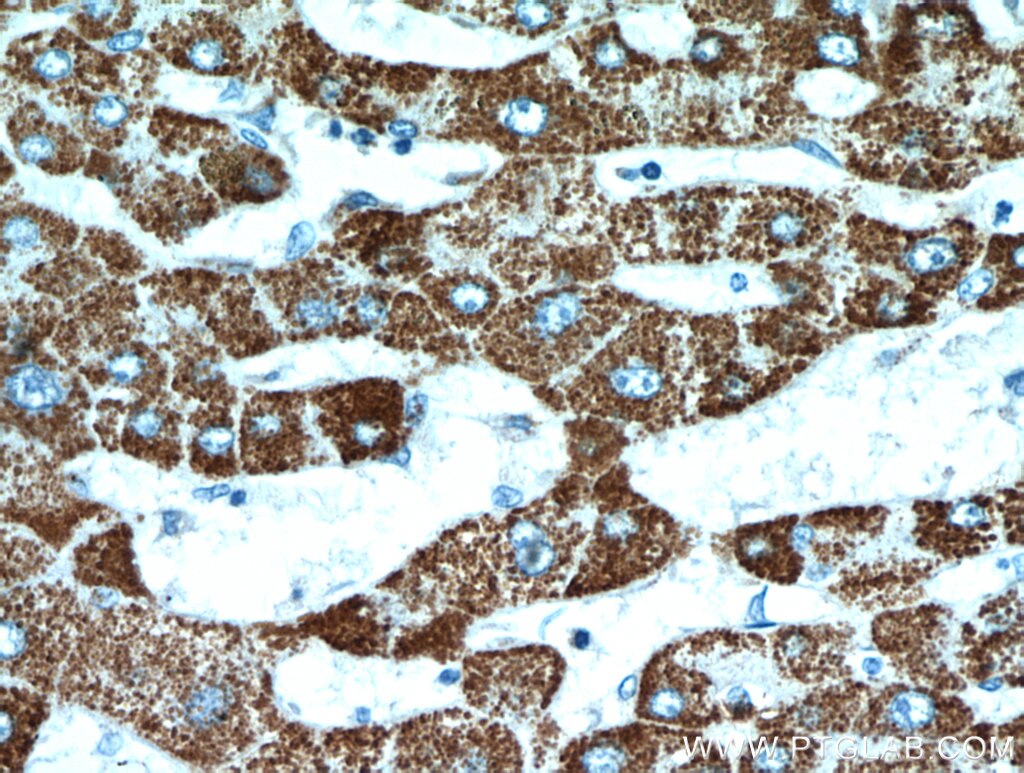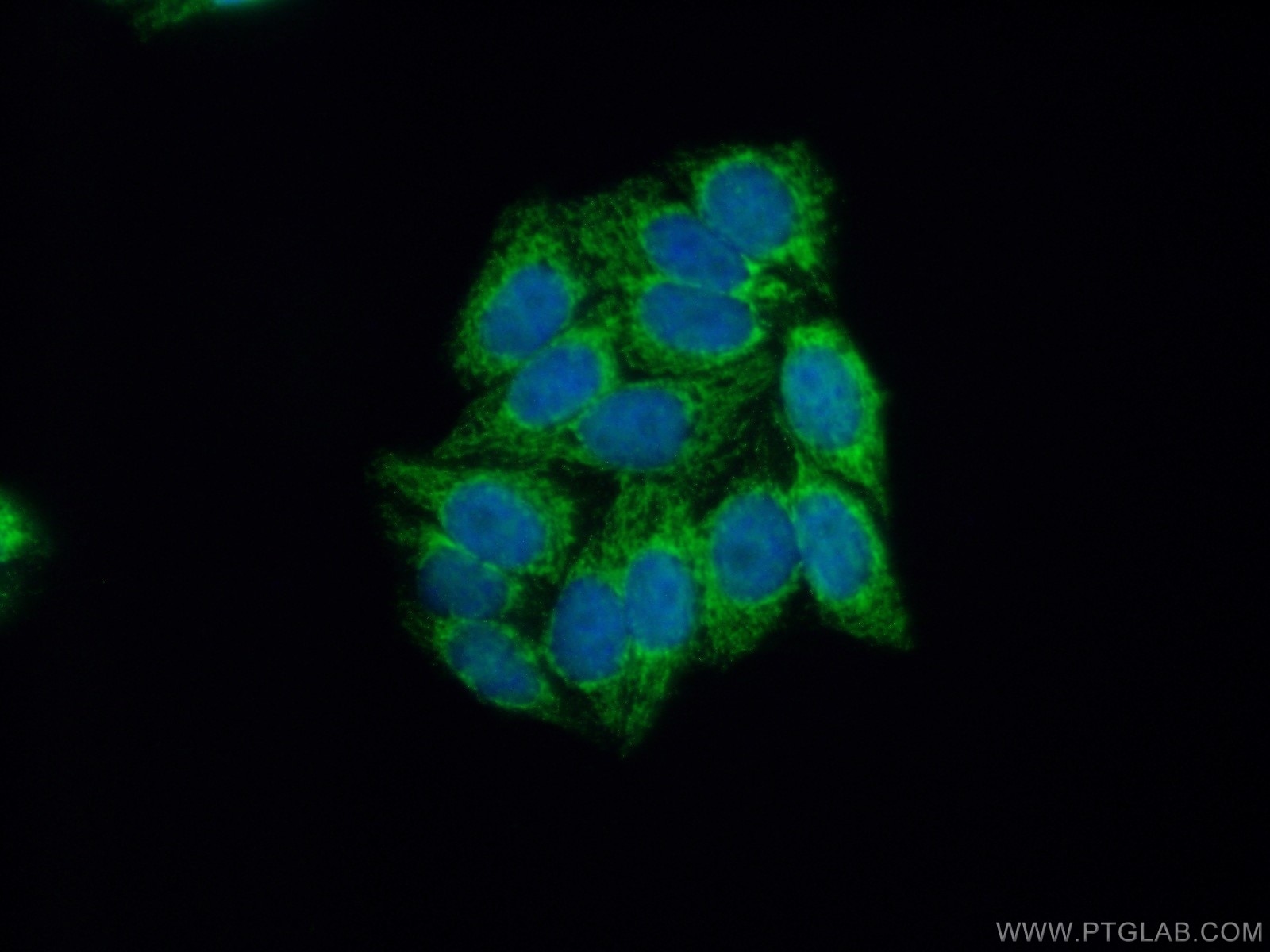Tested Applications
| Positive WB detected in | HepG2 cells, A2780 cells, Jurkat cells, mouse heart tissue, mouse kidney tissue, mouse liver tissue, mouse pancreas tissue, mouse skeletal muscle tissue, rat heart tissue |
| Positive IP detected in | HepG2 cells |
| Positive IHC detected in | human breast cancer tissue, human liver cancer tissue, human hepatocirrhosis tissue Note: suggested antigen retrieval with TE buffer pH 9.0; (*) Alternatively, antigen retrieval may be performed with citrate buffer pH 6.0 |
| Positive IF/ICC detected in | HepG2 cells |
Recommended dilution
| Application | Dilution |
|---|---|
| Western Blot (WB) | WB : 1:2000-1:10000 |
| Immunoprecipitation (IP) | IP : 0.5-4.0 ug for 1.0-3.0 mg of total protein lysate |
| Immunohistochemistry (IHC) | IHC : 1:250-1:1000 |
| Immunofluorescence (IF)/ICC | IF/ICC : 1:20-1:200 |
| It is recommended that this reagent should be titrated in each testing system to obtain optimal results. | |
| Sample-dependent, Check data in validation data gallery. | |
Published Applications
| WB | See 25 publications below |
| IHC | See 2 publications below |
| IF | See 1 publications below |
| IP | See 2 publications below |
Product Information
19828-1-AP targets HADH in WB, IHC, IF/ICC, IP, ELISA applications and shows reactivity with human, mouse, rat samples.
| Tested Reactivity | human, mouse, rat |
| Cited Reactivity | human, mouse, rat |
| Host / Isotype | Rabbit / IgG |
| Class | Polyclonal |
| Type | Antibody |
| Immunogen |
CatNo: Ag13928 Product name: Recombinant human HADH protein Source: e coli.-derived, PGEX-4T Tag: GST Domain: 1-314 aa of BC000306 Sequence: MAFVTRQFMRSVSSSSTASASAKKIIVKHVTVIGGGLMGAGIAQVAAATGHTVVLVDQTEDILAKSKKGIEESLRKVAKKKFAENPKAGDEFVEKTLSTIATSTDAASVVHSTDLVVEAIVENLKVKNELFKRLDKFAAEHTIFASNTSSLQITSIANATTRQDRFAGLHFFNPVPVMKLVEVIKTPMTSQKTFESLVDFSKALGKHPVSCKDTPGFIVNRLLVPYLMEAIRLYERGDASKEDIDTAMKLGAGYPMGPFELLDYVGLDTTKFIVDGWHEMDAENPLHQPSPSLNKLVAENKFGKKTGEGFYKYK Predict reactive species |
| Full Name | hydroxyacyl-Coenzyme A dehydrogenase |
| Calculated Molecular Weight | 314 aa, 34 kDa |
| Observed Molecular Weight | 30-34 kDa |
| GenBank Accession Number | BC000306 |
| Gene Symbol | HADH |
| Gene ID (NCBI) | 3033 |
| RRID | AB_10667408 |
| Conjugate | Unconjugated |
| Form | Liquid |
| Purification Method | Antigen affinity purification |
| UNIPROT ID | Q16836 |
| Storage Buffer | PBS with 0.02% sodium azide and 50% glycerol, pH 7.3. |
| Storage Conditions | Store at -20°C. Stable for one year after shipment. Aliquoting is unnecessary for -20oC storage. 20ul sizes contain 0.1% BSA. |
Background Information
HADH(Hydroxyacyl-coenzyme A dehydrogenase, mitochondrial) is also named as HAD, HADHSC, SCHAD and belongs to the 3-hydroxyacyl-CoA dehydrogenase family. It catalyzes the reversible dehydrogenation of 3-hydroxyacyl-CoAs to their corresponding 3-ketoacyl-CoAs with concomitant reduction of NAD to NADH and exerts it highest activity toward 3-hydroxydecanoyl-CoA. . Human HADH encodes a deduced 314-amino acid protein composed of a 12-residue mitochondrial import signal peptide and a 302-residue mature HADH protein with a calculated molecular mass of 34.3 kD.
Protocols
| Product Specific Protocols | |
|---|---|
| IF protocol for HADH antibody 19828-1-AP | Download protocol |
| IHC protocol for HADH antibody 19828-1-AP | Download protocol |
| IP protocol for HADH antibody 19828-1-AP | Download protocol |
| WB protocol for HADH antibody 19828-1-AP | Download protocol |
| Standard Protocols | |
|---|---|
| Click here to view our Standard Protocols |
Publications
| Species | Application | Title |
|---|---|---|
Cell Metab Pyruvate-supported flux through medium-chain ketothiolase promotes mitochondrial lipid tolerance in cardiac and skeletal muscles | ||
Hepatology Disruption of the histidine triad nucleotide-binding hint2 gene in mice affects glycemic control and mitochondrial function. | ||
EBioMedicine PPARγ maintains the metabolic heterogeneity and homeostasis of renal tubules. | ||
Sci Rep Targeted Metabolomics Reveals Abnormal Hepatic Energy Metabolism by Depletion of β-Carotene Oxygenase 2 in Mice. | ||

